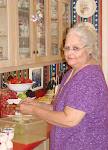Brideshead revisited yet again
Brideshead Revisited is the story of agnostic/atheist Charles
Ryder's encounter with The Faith, his confusion over it, his contempt for it,
his reluctant dawning understanding of it, his frantic retreat from it, and,
finally, his surrender to it.
In the final drama, Charles is living in sin with Julia Flyte
Motram, married sister of his college friend/infatuation, Sebastian Flyte. The Flytes are that rarest of commodities in England Venice
Weeks before his death he
tells his youngest, and most devout child that he claimed his freedom when he
left his wife praying in the chapel he had built for her. Was this a crime, he asks? "I think it was, Papa," says
uncompromising Cordelia.
Lord Marchmain's homecoming accelerates Julia's reluctant return
to religion---Charles' greatest fear--because, of course, if Julia returns to
the Faith, she will no longer be willing to divorce her divorced "husband"
in order to marry another divorced man---Charles himself. Julia has left the Church in order to marry
the first time, and has felt grief over it ever since. She once tells Charles that although she no
longer believed in God herself, she had intended to make certain that her
daughter was raised a good Catholic. The
baby, however, is stillborn, and Julia accepts it as part of her
punishment. She tells Charles that she
has earned sadness.
Charles has blamed the Church for every "misfortune" and
grief that has befallen the Flytes, beginning with his friend Sebastian's
alcoholism. In Charles mind, it is never
the fact that the Flytes disobey God which leads them to disaster, it is merely
the fact that God has rules. He believes
that the very thought of God is rubbish, and it never occurs to him that if the
Flytes, especially Julia and Sebastian, had submitted to Him, Sebastian would
have not ended his days in drunken exile and Julia would never have contracted
a miserable marriage.
As Lord Marchmain's death looms, His oldest son and Cordelia begin
a campaign to reconcile him with the Church.
Charles' objections are frantic and disproportional, as the objections
of so-called objective and logical agnostics always are to anything which
cements the existence of the God they flout.
Most distressing to him is the fact that his Julia is slowly
drifting into the enemy camp. He steps
up his protests and, in doing so, opens her eyes to the obvious.
“I really can’t see why
you’ve taken it so much to heart that my father shall not receive the last
sacraments.”
“It’s such a lot of
witchcraft and hypocrisy.”
“Is it? Anyway, it’s been going on for nearly two
thousand years. I don’t know why you
should suddenly get in a rage now…For Christ’s sake, write to The Times; get up
and make a speech in Hyde Park; start a ‘No Popery’ riot, but don’t bore me
about it. What’s it got to do with you
or me whether my father sees his parish priest?...I shall begin to think you’re
getting doubts yourself.”
In the end, in her siblings’ absence, it is Julia who makes the
decision to call a priest to administer last rites to her father, and all
Charles’ fears are realized---Lord Marchmain’s reconciliation with God, and
Julia’s, and the her consequential “Goodbye” to Charles and to all their plans,
but most of all his own realization of God and His Church. At the end of their brief and agonizing
goodbye, when Julia tells Charles that she had almost committed the
unpardonable sin of raising a rival good to God’s, Charles tells her that he
doesn’t wish to make things easier for her, but that he does understand.
In the epilogue, we glimpse Julia’s lonely but purposeful life,
and Charles’ conversion to his lifelong nemesis. But he leaves us with the
assurance that for all his loneliness, for all his lack of temporal
“happiness”, he has acknowledged his own responsibility for his actions and
their consequences and he has, quite unexpectedly, found Joy.


No comments:
Post a Comment